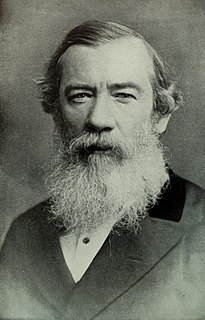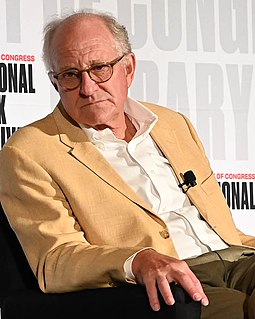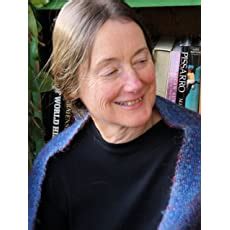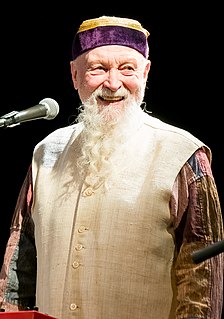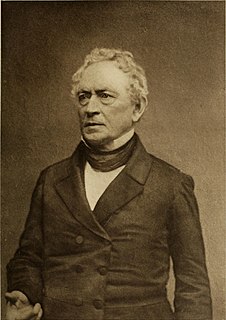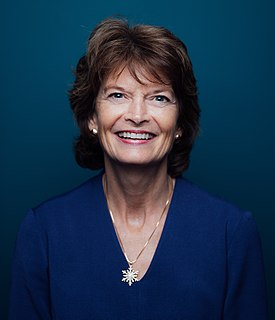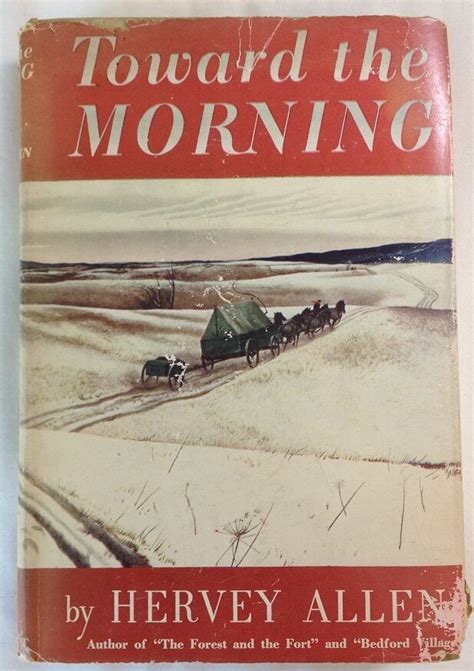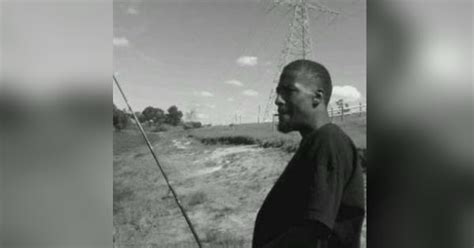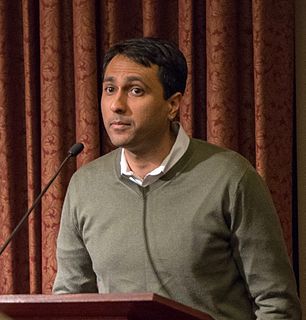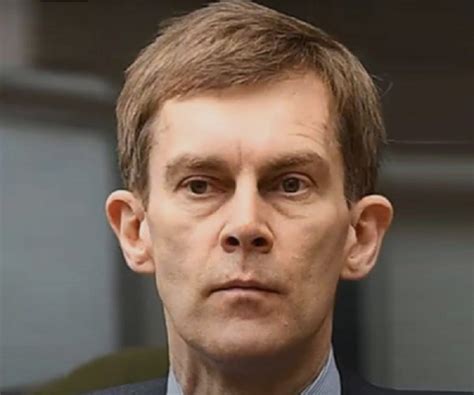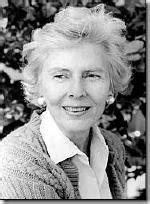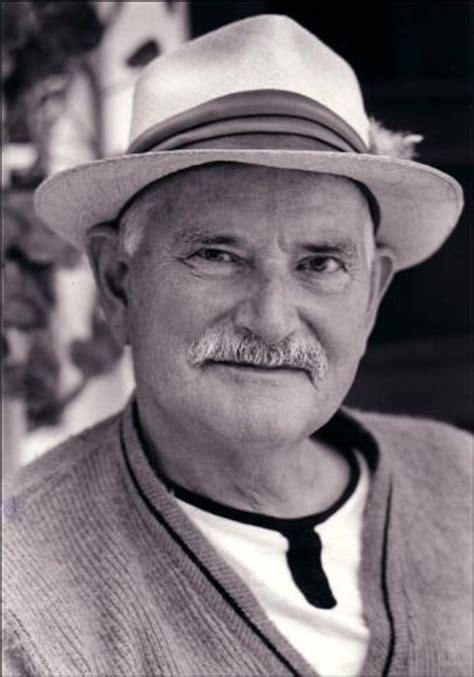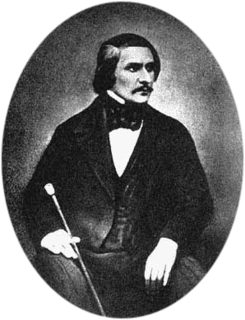Top 325 Villages Quotes & Sayings - Page 5
Explore popular Villages quotes.
Last updated on December 23, 2024.
The anthropologist must relinquish his comfortable position in the long chair on the veranda of the missionary compound, Government station, or planter's bungalow, where, armed with pencil and notebook and at times with a whisky and soda, he has been accustomed to collect statements from informants.... He must go out into the villages, and see the natives at work in gardens, on the beach, in the jungle; he must sail with them to distant sandbanks and to foreign tribes.
I was really interested in the ritual of fire dancing. I saw it when I was a kid. My parents took me to the Black Sea, it was like a tourist attraction. I think it would be hard to find a Bulgarian who is not familiar with the image. I started reading about it, and I found out there are only two villages in Bulgaria were they still do it properly, where it's not for tourists, and they were both in the Strandja Mountains.
The Marianne Vos Route goes through the seven villages of Aalburg, where I grew up, and celebrates my World and Olympic titles with a number of benches along the route, where you can stop and rest your legs. You'll see the white windmill in Meeuwen and, in Babylonienbroek, a statue of the silver bike I rode to celebrate my Olympic track win.
Post office closures in the Dakotas and Minnesota will impact many communities, but the White Earth reservation villages, and other tribal towns of Squaw Lake, Ponemah, Brookston in Minnesota, and Manderson, Wounded Knee and Wakpala (South Dakota) as well as Mandaree in North Dakota will mean hardships for a largely Native community.
A civic-minded nation is built by civic-minded neighbourhoods, whether in our cities or our villages. Where we respect the next-door person's space, privacy and rights. Where we do not inconvenience our neighbours - while celebrating a festival or while resorting to a protest or on any other occasion.
Some of the nations of Europe who believe in the one wife system have actually forbidden a plurality of wives by their laws; and the consequences are that the whole country among them is overrun with the most abominable practices: adulteries and unlawful connections through all their villages, towns, cities, and country places to a most fearful extent.
Before the birth of the New Woman the country was not an intellectual desert, as she is apt to suppose. There were teachers of thehighest grade, and libraries, and countless circles in our towns and villages of scholarly, leisurely folk, who loved books, and music, and Nature, and lived much apart with them. The mad craze for money, which clutches at our souls to-day as la grippe does at our bodies, was hardly known then.
Teenagers are bored. By everything. Show a teenager an actual volcanic eruption, in progress, featuring giant billowing clouds of smoke, hot rocks raining from the sky, lava floes destroying entire villages, etc., and the teenager, eyebrows arched with sarcasm, will look at you and say, "Gee, this is swell," then return to the rental car, turn on his portable CD player, and listen to a band called Stomach Contents.
We must reach out to villages even in scorching heat with temperature upto 44 C. We must ensure that no girl child remains illiterate. I request all the social institutions and the media world to create a joyous environment for education in the month of June (when schools re-open), an environment to encourage children to go to school. We will derive the satisfaction of having done a social good.
I walked across Tuscany from Siena to Rome, which was a lovely way to see the landscape. It was sunny but not too hot, and we made detours to look at treasures - churches, paintings, little hill villages. The first couple of days, you feel your knees are turning to jelly. But, at the end, you feel very limber. I hope I can always do it.
Millions of our fellow human beings continue to live as contemporary slaves, victims of abominable practices like human trafficking, forced labour and sexual exploitation. Countless children are forced to become soldiers, work in sweat shops or are sold by desperate families. Women are brutalized and traded like commodities. Entire households and villages labour under debt bondage.
It takes a disciplined imagination to acknowledge that the less personal savageries of bombs, missiles, artillery and heavy weapons are, to those blown to smithereens, also barbaric. The main horror of what the coalition is doing is not a matter of the occasional soldier who, in the heat of battle, commits a war crime, but the steady destruction rained on cities, villages, the Iraqi people. This violence is wreaked calmly, from a distance, within the rules of engagement. The war itself is the American war crime.
What a reason the Company has for observing its Rules faithfully: to do what the Son of God came into the world to do! That there should be a Company, and that it should be the Company of the Mission, composed of poor men, and that it should be entirely dedicated to that purpose, going here and there through hamlets and villages, leaving the towns behind-something that's never been done-and going to announce the Gospel only to persons who are poor; yet, those are our Rules!
Love is a war of lightning,
and two bodies ruined by a single sweetness.
Kiss by kiss I cover your tiny infinity,
your margins, your rivers, your diminutive villages,
and a genital fire, transformed by delight,
slips through the narrow channels of blood
to precipitate a nocturnal carnation,
to be, and be nothing but light in the dark.
War is a monster with snaky locks, and fiery bloodshot eyes, and harpy claws, passing over fair fields and leaving its footprints in burning villages, dying men, weeping wives and children, and needs to be seen by those who so eagerly clamour for it at every opportunity. The sight of that fearful phantom, girt round with skulls, chains reeking with blood and desolation and ruin in its track, would stop their eagerness for it, unless under real compulsion.
I love these appeals to the "complexity of doing business in Alaska." If you want to live in remote villages or places with hostile weather and environment, that's certainly your right. But why is it you please continue to expect that the rest of us are responsible for making that economically feasible. You already get a big boost from oil and other natural resources. If that's not enough to pay for the infrastructure you say you need, maybe you should consider moving down here. No passport or work visa is required.
Would it not be prudent to get our civilization tools together, and see how much stock is left on hand in the way of Glass Beads and Theology, and Maxim Guns and Hymn Books, and Trade Gin and Torches of Progress and Enlightenment (patent adjustable ones, good to fire villages with, upon occasion), and balance the books, and arrive at the profit and loss, so that we may intelligently decide whether to continue the business or sellout the property and start a new Civilization Scheme on the proceeds.
The sight of stars always sets me dreaming just as naively as those black dots on a map set me dreaming of towns and villages. Why should these points of light in the firmament, I wonder, be less accessible than the dark ones on the map of France? We take a train to go to Torascon or Roven and we take death to a star.
I would not have majored in English and gone on to teach literature had I not been able to construct a counterargument about the truthfulness of fiction; still, as writers turn away from the industrious villages of George Eliot and Thomas Hardy, I learn less and less from them that helps me to ponder my life. In time, I found myself agreeing with the course evaluations written by my testier freshman students:'All the literature we read this term was depressing.' How naive. How sane.
Agriculture seems to be the first pursuit of civilized man. It enables him to escape from the life of the savage, and wandering shepherd, into that of social man, gathered into fixed communities and surrounding himself with the comforts and blessings of neighborhood, country, and home. It is agriculture alone, that fixes men in stationary dwellings, in villages, in towns, and cities, and enables the work of civilizations, in all its branches, to go on.
I thank Missio, (Pontifical Mission Societies), the primary instruments for cooperation in the universal Church's universal mission in the world. Through their action, the proclamation of the Gospel bears witness to Christ and is lived out in service of our neighbour through justice for the poorest, education in isolated villages, medical care in remote areas, freedom from poverty, the reintegration of the marginalised, support for the development of peoples, the breaking down of ethnic divisions and respect for life in all its stages.
In villages across the developing world, governments have provided reasonable enough latrines that have again and again been turned into storage spaces or simply abandoned. In India alone, millions of government-funded latrines have become goat-sheds. Some had been built near kitchens, a taboo in Indian households.
The Sage of Toronto... spent several decades marveling at the numerous freedoms created by a "global village" instantly and effortlessly accessible to all. Villages, unlike towns, have always been ruled by conformism, isolation, petty surveillance, boredom and repetitive malicious gossip about the same families. Which is a precise enough description of the global spectacle's present vulgarity.
There is a great good in returning to a landscape that has had extraordinary meaning in one's life. It happens that we return to such places in our minds irresistibly. There are certain villages and towns, mountains and plains that, having seen them walked in them lived in them even for a day, we keep forever in the mind's eye. They become indispensable to our well-being; they define us, and we say, I am who I am because I have been there, or there.
Between the villages of Aubiere and Romagnat in the ancient Province of Auvergne there is an old road that comes suddenly over the top of a high hill. To stand south of this ridge looking up at the highway flowing over the skyline is to receive one of those irrefutable impressions from landscape which requires more than a philosopher to explain. In this case it is undoubtedly, for some reason, one of exalted expectation.
I think London is made up of tiny little pockets and villages, and lots of little sub-cultures. So, especially for an actor, it's a brilliant place to live because you've got inspiration all the time, wherever you are. You can turn a corner and you'll be in mansion houses with beautiful gardens and Ferraris, and you'll turn back on yourself and it'll be ghetto land. But I think that's brilliant.
Why should not we, who have renounced the king's authority, have our national preserves, where no villages need be destroyed, in which the bear and panther, and some even of the hunter race, may still exist, and not be "civilized off the face of the earth," - our forests, not to hold the king's game merely, but to hold and preserve the king himself also, the lord of creation, - not for idle sport or food, but for inspiration and our own true re-creation?
Pinkville was called Pinkville because in the military maps, it was shaded a bright kind of shimmering pink, which signified what was called on the maps a 'built up' area, which was extremely misleading - 'built up' only meant there were little villages and it wasn't just desolate paddy land or unpopulated.
The birds sang, the proles sang. the Party did not sing. All round the world, in London and New York, in Africa and Brazil, and in the mysterious, forbidden lands beyond the frontiers, in the streets of Paris and Berlin, in the villages of the endless Russian plain, in the bazaars of China and Japan — everywhere stood the same solid unconquerable figure, made monstrous by work and childbearing, toiling from birth to death and still singing.
There are so many shocking things. Is it more shocking that there are children sold into slavery in every city in the world and right under our noses or that there are villages in Nepal where there are no children left because they have all been kidnapped for sex trafficking, or that there are generations of slaves in some countries where indentured slavery passes from generation to generation and that kids grow into adults not knowing that another world - another life - exists?
Every morning our newspapers could read, 'More than 20,000 people perished yesterday of extreme poverty.' How? The poor die in hospital wards that lack drugs, in villages that lack antimalarial bed nets, in houses that lack safe drinking water. They die namelessly, without public comment. Sadly, sad stories rarely get written.
The actual communicative value of what we say is usually quite small. I've lived for times in small, isolated fishing villages, where everyone knows everyone each other and everyone knows what's going on and everyone's watched the same TV programs and, really, there's not a whole lot of new information to convey. But there's still a lot of talking. What's said doesn't seem to matter; that you say it, and who you say it to, and how you say it is what matters.
North Korea is no threat at all. I have already spoken about it during countless televised interviews. I visited North Korea and mingled with its people. There, nobody wants war. The North Korean people paid a terrible price for their independence. Its civilians were murdered mercilessly in tunnels by Western forces; its women were brutally raped, entire villages and towns leveled to the ground, or burned to ashes. All this is never discussed in the West, but is remembered in North Korea.
It has passed over mountain ranges and
The waters of the seven seas.
It has shown upon laborers in the fields,
Into the windows of homes,
And shops, and factories.
It has beheld cities with gleaming towers,
And also the hovels of the poor.
It has been witness to both good and evil,
The works of honest men and women and
The conspiracy of knaves.
It has seen marching armies, bomb-blasted villages
And "the destruction that wasteth at noonday."
Now, unsullied from its tireless journey,
It comes to us,
Messenger of the morning.
Harbinger of a new day.
Everywhere I go - from villages outside Kandy, Sri Lanka, to community centers in Amman, Jordan, to offices at the State Department in Washington, D.C. - I find people with a similar story. When thousands of people discover that their story is also someone else's story, they have the chance to write a new story together.
The assertion that 'culture' explains human variation will be taken seriously when there are reports of women war parties raiding villages to capture men as husbands, or of parent cloistering their sons but not their daughters to protect their sons' virtue, or when cultural distributions for preferences concerning physical attractiveness, earning power, relative age and so on show as many cultures with bias in one direction as in the other.
I shall clasp my hands together and bow to the corners of the world. May your villages remain ignorant of tax collectors, and may your sons be many and ugly and strong and willing workers, and may your daughters be few and beautiful and excellent providers of love gifts from eminent families that live very far away, and may your lives be blessed by the beauty that has touched mine. Farewell.
I did a lot of reading of first person accounts from Koreans and combatants and aid workers. And I spoke to relatives. A lot of wonderful photographs were made available to me from that period - 1950-1956 - and those were given to me by a Korean newspaper in Seoul. Ruined villages, refugees streaming through a river valley, GI's and orphans and orphanages, those tiny details that you can only see in a picture.
The boyfriend of the student music teacher came in: "Hey, kids, this is a real Air Force pilot." I asked him something to the effect of how it felt to be dropping bombs on children in Vietnamese villages. And it got very icy in there all of a sudden, and finally the teacher said, "Oh, well, Eric reads a lot of newspapers. Next question."
The decision to rely heavily on high-altitude air power, target urban infrastructure and repeatedly attack heavily populated towns and villages has reflected a deliberate trade-off of the lives of American pilots and soldiers, not with those of their declared Taliban enemies, but with Afghan civilians... There will be no official two-minute silence for the Afghan dead, no newspaper obituaries or memorial services attended by the prime minister, as there were for the victims of the twin towers.
To those peoples in the huts and villages of half the globe struggling to break the bonds of mass misery, we pledge our best efforts to help them help themselves, for whatever period is required - not because the Communists may be doing it, not because we seek their votes, but because it is right. If a free society cannot help the many who are poor, it cannot save the few who are rich.
Post office closures in the Dakotas and Minnesota will impact many communities‚ but the White Earth reservation villages‚ and other tribal towns of Squaw Lake‚ Ponemah‚ Brookston in Minnesota‚ and Manderson‚ Wounded Knee and Wakpala (South Dakota) as well as Mandaree in North Dakota will mean hardships for a largely Native community.
The United States, which has been called the home of the persecuted and the dispossessed, has been since its founding an asylum for emotional orphans. For over three hundred years, refugees from political oppression, religious persecution, famine, poverty, and a rigid class system which limited educational and economic opportunities have been leaving their native villages and cities and coming to the United States in search of freedom and a better life.
Our civilization has fallen out of touch with night. With lights, we drive the holiness and beauty of night back to the forests and the sea; the little villages, the crossroads even, will have none of it. Are modern folk, perhaps, afraid of night? Do they fear that vast serenity, the mystery of infinite space, the austerity of stars?
My name is Mankiller, and in the old Cherokee Nation, when we lived here in the Southeast, we lived in semi-autonomous villages, and there was someone who watched over the village, who had the title of mankiller. And I'm not sure what you could equate that to, but it was sort of like a soldier or someone who was responsible for the security of the village, and so anyway this one fellow liked the title mankiller so well that he kept it as his name, and that's who we trace our ancestry back to.
Once you educate the boys, they tend to leave the villages and go search for work in the cities, but the girls stay home, become leaders in the community, and pass on what they've learned. If you really want to change a culture, to empower women, improve basic hygiene and health care, and fight high rates of infant mortality, the answer is to educate girls.
I am very fond of the modest manner of life of those solitary owners of remote villages, who in Little Russia are commonly called "old-fashioned," who are like tumbledown picturesque little houses, delightful in their simplicity and complete unlikeness to the new smooth buildings whose walls have not yet been discolored by the rain, whose roofs are not yet covered with green lichen, and whose porch does not display its bricks through the peeling stucco.
















